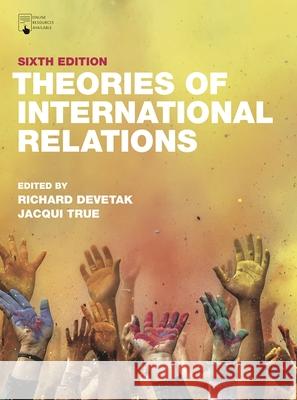Theories of International Relations » książka
topmenu
Theories of International Relations
ISBN-13: 9781352012170 / Angielski / Twarda / 2022 / 336 str.
Kategorie BISAC:
Wydawca:
Red Globe Press
Język:
Angielski
ISBN-13:
9781352012170
Rok wydania:
2022
Wydanie:
2021
Ilość stron:
336
Waga:
0.99 kg
Wymiary:
27.3 x 20.96 x 1.91
Oprawa:
Twarda
Wolumenów:
01
Dodatkowe informacje:
Obwoluta











